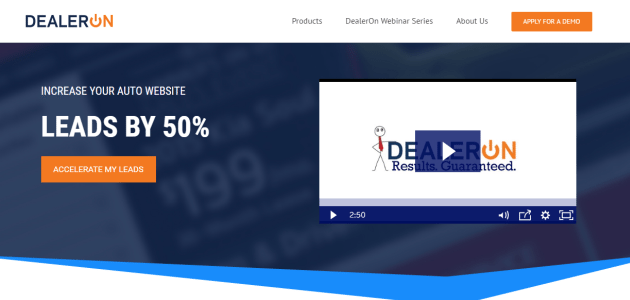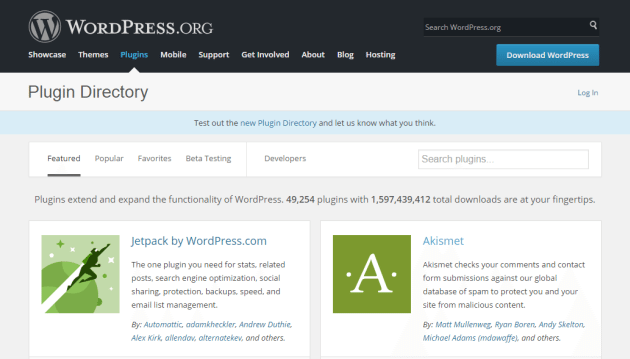Given its beginnings, WordPress has gathered its fair share of misconceptions since its release back in 2003. Arguably the most common misconception clients have about WordPress is that it’s merely a blogging platform, and therefore isn’t suited to developing eCommerce websites.
In reality, WordPress is powerful and flexible enough to become your go-to solution for developing all manner of websites – including eCommerce sites and online stores.
In this post, we’ll debunk some of the most common myths and misconceptions about WordPress-based eCommerce sites from a developer’s perspective. Hopefully, by the time you’re done reading this post, you’ll have a better understanding of the functionality WordPress has to offer.
Let’s get cracking!
Myth #1: WordPress Isn’t Suited to Large-Scale eCommerce Websites
Developers looking to build small-scale online stores often don’t second-guess WordPress to power it. While plugins such as WooCommerce have a stellar reputation, when it comes to building large-scale eCommerce stores, many look to other solutions such as Shopify. It’s a simple matter of perception.
No matter the size of your client’s business, WordPress is a viable option for developing an online store if used correctly. After all, sites such as Bata, DealerOn, and WooThemes are all built on WordPress. What’s more, plugins such as the aforementioned WooCommerce are scalable, powerful, and easy to customize to your needs. It means a solid eCommerce site is possible using the free solutions.
Ultimately, there are a few things you’ll want to keep in mind to minimize any post-development site maintenance issues. For instance, it’s always a good idea to develop with future-proofing in mind, such as considering a reputable hosting provider designed to run large-scale WordPress sites. Additionally, you’ll also want to have a reliable backup system in place in case the worst happens and you need to re-upload your site.
Overall, WordPress’ scalability and extendability also make it a popular choice for developing any sized eCommerce store – even at the enterprise level.
Myth #2: WordPress’ Functionality Is Not Enough to Power an eCommerce Site
As we’ve just discussed, WordPress is more than enough to power an eCommerce site of any level. However, it’s not a dedicated eCommerce platform like Shopify and BigCommerce. Because of this, some people extrapolate and assume that because WordPress isn’t a dedicated eCommerce platform, it doesn’t offer enough functionality to get the job done.
It’s a pretty easy assumption to make, although the wrong one. Simply put, there are several reasons why you may want to opt for WordPress to power your eCommerce site:
- Finer control. WordPress gives developers full control over their entire website – including hosting, plugin choice, customizability, and extendability.
- A myriad of plugins and add-ons. WordPress’ inherent flexibility enables developers to extend its functionality through the use of plugins.
- Its powerful publishing tools. Since WordPress is now a full-fledged Content Management System (CMS), you also get access to some strong built-in publishing capabilities right out of the box. Of course, plugins can also help you fill in the gaps, but from an eCommerce perspective, building landing pages and product pages becomes infinitely easier when using WordPress.
Overall, WordPress has more than enough features to help power your eCommerce site. To take things further, WordPress also enables you to tinker under the hood to fine tune its performance for eCommerce.
Myth #3: WordPress eCommerce Stores Need Experts to Run It
To the layperson, this myth is a logical one. They may realize that WordPress and its additional functionality is powerful, and know of its capability for running a large-scale eCommerce website. However, this could lead some to believe that using the platform is well beyond the reach of their own abilities, potentially meaning they’ll need a specialist to run it.
What’s more, with WordPress being open-source software, if the client has had a poor experience using open-source technology in the past, it only stands to reinforce their misconceptions. Of course, nothing could be further from the truth.
The beauty of WordPress is that it can be used by all kinds of users regardless of their technical expertise. For instance, if a particular task requires you to mess around with your site’s core files, there’s likely a plugin solution available to help you. In fact, it’s entirely possible to build a fully functional eCommerce site without having to hire a developer or trudging through technical documentation. What’s more, the plethora of instructional WordPress-related content on the web is staggering – understandable given the platforms’ dominance.
Finally, because many business owners are a bit skeptical about operating a WordPress-based eCommerce site, you may need to take a step back and think about how you’d convince them otherwise. You could start out by customizing the admin panel to make it more user-friendly for non-techy site owners. Adding a few dashboard widgets and some helpful guidance throughout can make it significantly easier for newbies to ‘bed in’.
Myth #4: WordPress Is Not Secure Enough to Power an eCommerce Site
There’s one perennial concern nearly every WordPress user or developer has regarding their website – security. Given the constant discussion around this subject, it’s surprising that this misconception still exists. However, for those who believe it, there is some basis to it.
As you’re no doubt aware, WordPress is open-source – to a layperson, this could translate as free and vulnerable. However, WordPress takes security incredibly seriously, as do a number of other developers. In fact, as it pertains to eCommerce, there are a number of reasons you’re safe with the platform:
- Secure checkouts. SSL certificates ensure the data transferred between your site and your customer’s browser is encrypted. This simple functionality greatly enhances the security WordPress-based eCommerce sites can provide. While WordPress doesn’t offer this out of the box, its functionality makes it a simple element to implement.
- Payment gateways. Unlike other eCommerce platforms, WordPress offers a wide range of plugins that enable developers to integrate third-party payment gateways (such as PayPal) into their site, instead of relying on a custom solution.
- Secure passwords. WordPress understands the importance of setting strong login credentials. There are several plugins available that force your customers to create strong passwords, and out of the box it also contains a strong password generator and validator.
To get started, you’ll want to install a free SSL certificate on your WordPress site if you haven’t done so already. As the year progresses, both WordPress and Google will clamp down on potentially unsecured sites across the board, so it’s a good idea to get onboard now. Taking care of your site’s security, in general, is also vital, and while you could easily head down the proverbial rabbit hole with this, installing a plugin such as Wordfence Security is a solid first step.
Overall, WordPress is perhaps one of the most secure platforms available. It releases security updates regularly, and you’re also free to tailor your site to your own needs via plugins or under the hood tweaks.
Myth #5: WordPress’ Plugins Are Not Robust Enough for Running an eCommerce Site
Our final WordPress misconception is one we’ve touched on throughout this piece. Given that other platforms have eCommerce functionality built-in to their core software, it’s fairly easy to see why a typical user might think WordPress’ eCommerce plugins are not up to scratch. After all, bolting on additional features is never going to be as good as functionality that’s been integrated from the start.
However, the reality is somewhat different. WordPress has a plethora of plugins – both free and premium – that enable developers to extend its core functionality however they see fit. Some plugins even have a wide range of extensions on offer to enhance their feature set even more.
For instance, WooCommerce is one of the most popular (and free) eCommerce plugins for WordPress and offers hundreds of extensions and add-ons. There are plenty of other options too, and many themes also offer integrated customization via a dedicated admin panel – so that should be a testament to the robustness of WordPress’ eCommerce solutions.
Conclusion
As a developer, an easy to use, powerful solution for creating a website is vital, and WordPress can help you create eCommerce sites of any size in a snap. However, there are many who believe a number of myths about the platform, and listening to them yourself can disrupt your decision-making process and potentially leave you stuck with a subpar solution.
In this piece, we’ve debunked four myths of building an eCommerce site with WordPress. Let’s quickly take a look at the truth behind each of them:
- WordPress is a great solution for everyone, whether that’s small-scale sites or enterprises.
- The core WordPress software is robust enough to power a fully functional eCommerce site.
- WordPress is easy to use for both developers and non-developers.
- WordPress rolls out security updates regularly and you can minimize any potential threats by keeping your eCommerce site up to date.
- There are a number of free and premium plugins (such as WooCommerce) to help you develop a stellar eCommerce site.
Are there any other common myths you’ve come across regarding eCommerce for WordPress? Let us know via the comments section below!
Image credit: JuralMin.




No Comments